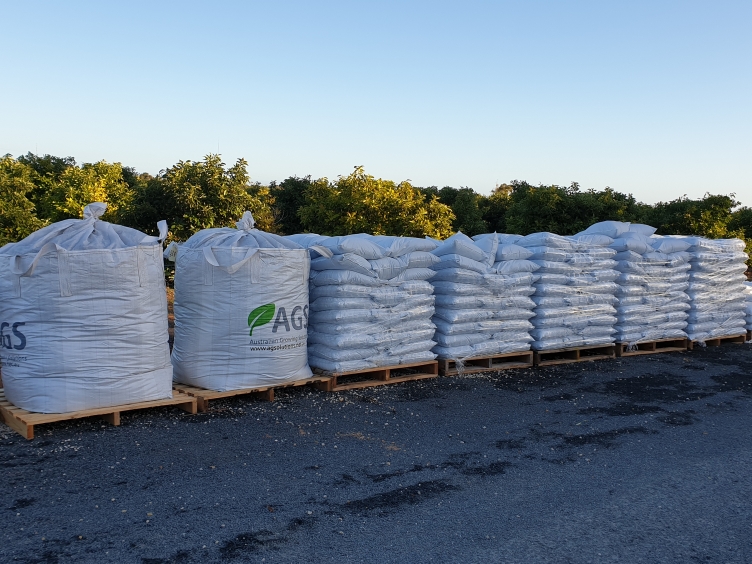Being Green
Not only does Solan grow a lot of green, it is very conscious of it’s impact on the environment!
We continually seek to maximise the use of resources throughout the facility during production, implementing new technologies to improve product quality, improve production efficiency and recycle wherever possible to reduce waste and its negative impacts on the environment.

Some of the ways we are addressing our environmental footprint:
Offsetting cool room power requirements with a solar system. Power generated from the solar panels is used to offset the cool storage facility and greenhouse production area.
Condensation which forms on the condensers in the cool room is now collected in a holding tank. This is then filtered and reused to supply humidifiers located within in the cool room optimising tuber storage.
Converting the irrigation system from overhead sprinklers to drip irrigation has reduced water consumption, provides better management in targeting crop water requirements more efficiently and eliminates over spray to the floor below. This has resulted in overall improved plant growth, reduced pest and disease incursions, eliminated algae growth on the floor and cleaning time each day and as we rotate to crop from to another.
IPM approach to pest management was adopted many years ago at Solan enabling it to move away from the use of highly toxic chemicals that posed a threat to staff and the environment. Solan sources predators weekly via a local producer and engages a third party to monitor for pest and disease presence on a regular basis to support the inspections staff conduct on a weekly basis. The adoption of the IPM system means Solan is continually looking for pest and disease threats within the growing plants and can manage this in its early stages to very rarely require the use of chemical sprays to control pests in the greenhouse. In the event a chemical treatment is required, consideration for the chemicals selected must allow for predators already within the nursery so that a minimum number of the population are killed off in the process and can continue do their work seeking out pests and destroying them.
The bulk bags we receive the potting media in are unable to be returned to their place of purchase or be recycled through recycling systems however these are now taken by a poultry enterprise for use in their facility. We no longer send the bulk of the used bags to landfill and the poultry enterprise no longer purchases new bags. Community gardening groups are now requesting emptied bulk bags for use in their systems and local residents collect for use in home gardens.
Potting Mix is retained through the harvesting procedure and either bagged into 25 L plastic bags or returned into the bulk bags it was originally delivered in. This product is then recycled by members of the community in their own gardens or purchased by companies for use in projects such as vertical gardens for the home, office and commercial premises. Community gardens also use this mix in their garden beds. The time the potting mix has been used for is only a couple of months therefore is excellent for reuse.

Recycling of tissue culture vessels and vials that have reached their useful for the needs in the laboratory are taken by local schools and kindergartens to be re purposed.
All rainwater runoff from the sheds and greenhouses is collected in tanks and reused onsite for irrigation and use in the air conditioning system.
Irrigation water sourced through the local irrigation scheme for the growing crop, air-conditioning unit and general cleaning is treated through an Ultra Filtration System that is then treated with a hydrogen peroxide and silver ion solution. The back wash water from the ultra filtration system is collected in a tank and recycled by irrigating gardens on the property rather than using water directly via the local irrigation scheme.
Solan sterilises its production pots the plants are grown in minimising the volume of plastic that would otherwise be sent to landfill. Solan purchases new pots as the old ones come to the end of their working life. Pots are soaked in a sterilising bath then put through a washing system containing a detergent solution and stored until required again for use.





